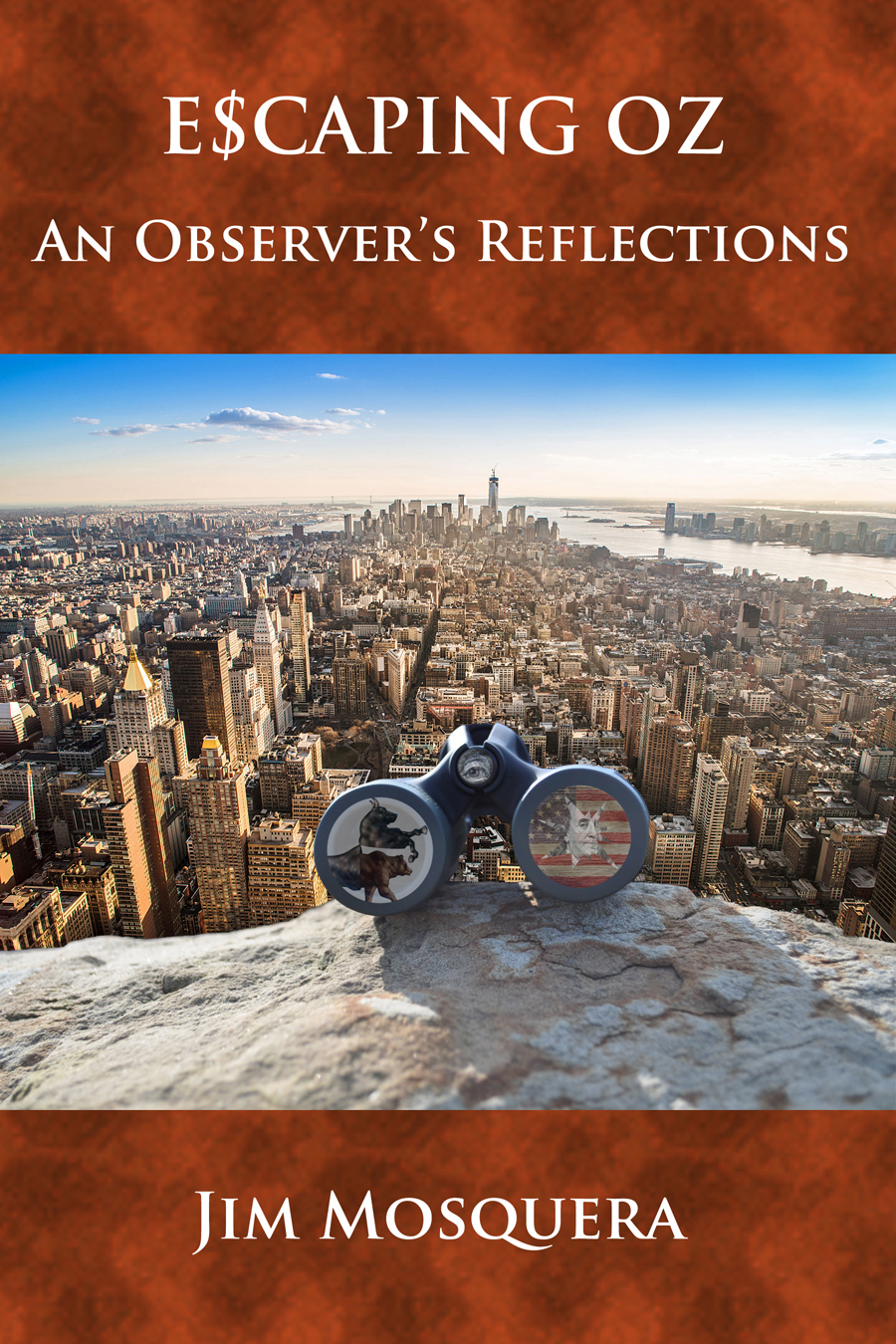The election ended over one week ago and as of now the Democratic challenger leads by more than 1 million votes over the President-Elect with still a sizable number of votes yet to be counted. Regardless, the popular vote margin is not expected to change the outcome of the Electoral College vote next month. My son has asked me a couple of times since Election Day about how I felt regarding the outcome. I suggested that I didn't have a strong opinion on whether a Republican or Democrat became president. He expressed great doubt despite my reassurances.
The mainstream media is now questioning the polling organizations suggesting they got it all wrong. There have been expressions of shock on the part of Clinton supporters for what seemed like a certain victory. I'm no pollster though I have had some training in statistics given my Industrial Engineering degrees. I saw a number of polls within the final two weeks of the election that had Clinton with a slight lead over Trump, another had Trump with a slight lead over Clinton, and yet another (I believe it was an NBC/WSJ poll) showed Clinton ahead by a few points. Keep in mind these are national polls, not state polls. For the polls where the race was deemed close, many were within the margin of error. As I noted to a friend recently, if the election was a football game, Clinton would have home field advantage, which conferred at most 3 points. That would have been my opening line the day before the election. This meant, in my mind, that the election was a dead heat, either candidate had a good chance of winning.
The Democratic side, I believe fell victim to some amount of confirmation bias by presuming that a slight lead in a national poll translated into an election night victory. What they didn't anticipate was the loss of states carried by President Obama in the previous elections. My guess is that some Democratic voters didn't feel passionate enough about Clinton to support her despite their antipathy for Trump. This group may well have included Sanders supporters. This election, without doubt, had a large percentage of voters who were simply voting against the other party rather than for their own. There were others that simply did not vote. Which brings me back to the question my son asked me. Why did I not have a strong opinion on the election's outcome?
I will now reveal my own bias. I firmly believe that first and foremost, people vote with their pocketbook. That is not to suggest other issues are unimportant to them. This is the first election since before I could vote, that I had no sense of who would win. The only thing I presumed is that Clinton would be the Democratic nominee. On the GOP side, it was truly wide open. That said, there were three candidates in the 2016 election who embodied ideologies that fell outside of traditional Dem or GOP sphere: Trump, Sanders, and Dr. Carson.
I suggested in my first book (published 2011) that a third party undercurrent was forming due to the anger that most clearly manifested with the Tea Party in 2009 and the Occupy (fill in the blank) movement. I predicted that neither the Tea Party nor Occupy would form into a third party due to the difficulty of running as that type of candidate. Yet we just elected a president with no particular ideology who is neither a Republican or Democrat. Senator Sanders gave Secretary Clinton all she could handle, and as evidenced by Wikileaks, probably more than she could handle. Both of these movements (Trump, Sanders) have what I call third party undercurrents. Supporters of both Trump and Sanders have a common thread, they feel left out of whatever "recovery" the nation has experienced. The Tea Party wanted to rein in Washington while the Occupy movement railed against the upper echelons of economic society. It's not hard to link these supporters to Trump and Sanders respectively. So had it not been for the machinations of the DNC you might have had a Trump v. Sanders election — candidates who were outsiders to the two party system.
If I continue with my presumption that voters will be guided by their pocketbook, what would a Clinton or Trump victory mean for the economy? The prevailing economic dogma of both parties is that somehow the Wizards in government or central banking can somehow sprinkle magic dust on the economy to make it do what they want. Japan's experience over the last generation and the rest of the world's grand experiment since 2008 has not dissuaded anyone about the magic dust belief. Trump, and I'm certain Clinton, would both propose massive "infrastructure" spending to stimulate the economy. Why? Likely their economic advisors suggested the use of "helicopter" money. Let me explain.
In 2008 government passed a massive stimulus plan. Since 2008, the Fed's balance sheet grew to over $4 trillion. Also in that time, interest rates fell dramatically and the nation's funded debt nearly doubled. We are getting far less bang for our debt and one could argue that greater debt is merely exacerbating growth. Most of the new money created in the economy has not been circulated (low money velocity) so the Wizards have to pull the next lever, helicopter money. This just means that government will spend the money that the private economy is not by way of fiscal expenditures (see infrastructure spending). You might argue that President Trump will have to raise taxes to finance this spending. This is where the second part of helicopter money comes into play since the Fed will finance it, not tax increases needed. This will simply add to the debt pile.
As I argued in Escaping Oz: Navigating the crisis, the credit bubble in the roaring 1920s could be equated to a beach ball. The present credit bubble is the size of one of those blimps that floats above sports stadiums. Neither Trump or Clinton will address this and their economic advisors will not either. This is why the election's outcome did not matter to me. The next credit crisis will be one for the history books.
In 1998 a large hedge fund got bailed out by banks. In 2008 banks got bailed out by the Fed Wizards. Who will bail out the Fed?
In 2016 I released a fictional novel called 2020 answering this question. While the novel's intent is to entertain, there are lessons to be gleaned by this potential path in our nation's future.




